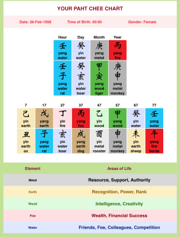
Let’s be honest—no one enjoys talking about their bowel habits.
But the truth is, these awkward chats with your doctor could be more important than you think.
From bloating to breaking wind, understanding what’s normal and what’s not could literally save your life.
The reality? Passing wind is perfectly natural.
Most people release gas around 15 to 20 times a day—a sign that your gut is working hard to digest fibrous foods.
This process creates gases like carbon dioxide, hydrogen and methane as gut bacteria break down food that the rest of your digestive system can’t handle.
Interestingly, many people who believe they’re excessively gassy don’t actually produce more gas—they’re just more conscious of it.
Still, noticeable changes in flatulence patterns, especially when paired with other symptoms, are worth mentioning to your GP.
Understanding your gut as you age
Your gut microbiome—the collection of bacteria living inside your digestive system—naturally shifts as you age.
Diet, medications and age-related health conditions all play a role in these changes.
As we grow older, our bodies can struggle to digest certain short-chain carbohydrates known as FODMAPs.
These are found in everyday foods like beans, lentils, broccoli, wheat, garlic, onions, apples and even some fruit juices.
If these foods have you feeling extra gassy lately, you’re in good company.
It’s also smart to check your medication labels.
Some medicines—like Metformin for diabetes, lactulose (a laxative), and antacids such as Gaviscon and Rennie—can increase carbon dioxide in your stomach, leading to more gas.
When diet might be the culprit
You might think cutting down on fibre will stop the wind, but the opposite is true.
A lack of fibre can cause your gut bacteria to become less diverse, resulting in more gas and bloating.
Fibre also helps prevent constipation, which can make flatulence smell stronger as food sits longer in your gut.
'When you start adding more fibre to your diet, be ready for a few days of extra wind, as when you start eating more fibre it's like throwing your gut bacteria a birthday party—they joyfully binge on the fibre and produce a lot of gas.'
Red meat is another common cause of unpleasant gas because of its high sulphur content.
Although sulphur appears in other foods like fish, eggs and certain vegetables—cabbage, broccoli, Brussels sprouts and cauliflower—it’s usually excessive red meat that makes the biggest difference.
If dairy leaves you gassy, lactose intolerance could be the reason.
This happens when your body doesn’t produce enough lactase, the enzyme needed to break down lactose in milk.
When undigested lactose reaches your gut, bacteria ferment it, creating gas and sometimes causing diarrhoea, constipation or nausea.
Serious health conditions to watch for
While most gas is harmless, ongoing changes combined with other symptoms can point to more serious conditions—particularly for older adults.
Bowel cancer warning signs
Bowel cancer remains a major concern, with around 7,265 people aged 50–74 diagnosed in 2024.
The good news? Early detection means nine out of ten cases can be successfully treated.
Persistent flatulence accompanied by blood in your stools is a red flag.
Other warning signs include ongoing changes in bowel movements, diarrhoea or constipation, unexplained weight loss, or bloating and stomach aches lasting three weeks or more.
Free Australian Bowel Cancer Screening Program
From July 2024, Australians aged 45–74 can access free bowel cancer screening
Ages 50–74: Automatically receive free test kit every 2 years
Ages 45–49: Can request free kit by calling 1800 627 701
The test is done at home and posted back—Results within 4 weeks
Over 90% of bowel cancers can be successfully treated if caught early
Contact: Call 1800 627 701 or visit health.gov.au
Unfortunately, only 43.8 per cent of eligible people complete their bowel screening test, with men’s participation even lower at 41.93 per cent.
Experts estimate that increasing this rate to 60 per cent could save 84,000 lives by 2040.
Other concerning conditions
Persistent bloating or gas could sometimes be an early sign of ovarian cancer, which often causes extreme bloating due to fluid build-up in the abdomen.
Excessive flatulence can also indicate pancreatic insufficiency, a condition where your pancreas fails to produce enough digestive enzymes.
This can lead to bloating, cramps and gas and may signal inflammation or pancreatic cancer.
Another possible culprit is Irritable Bowel Syndrome (IBS), which affects roughly 4 in 100 people worldwide.
IBS can cause cramping, painful gas build-up, diarrhoea or constipation.
If you consistently react to certain foods or notice blood in your stools, speak to your GP instead of self-diagnosing.
Managing symptoms and seeking help
If IBS is the issue, peppermint oil capsules (available in pharmacies) can help relax your gut muscles and ease trapped wind.
But always check with your pharmacist first—these capsules aren’t suitable if you’re pregnant or have liver disease or gallstones.
Suspect lactose intolerance? Try reducing dairy temporarily to see if symptoms improve.
Many people can tolerate small amounts—like one glass of milk a day—or switch to lower-lactose options such as kefir or hard cheeses.
You can also use lactase drops from the chemist to help digest lactose.
Taking action for your health
Above all, don’t let embarrassment stop you from raising these concerns with your GP.
They’ve heard it all before and are there to help, not judge.
If you’re aged 45–74, you qualify for Australia’s free bowel cancer screening program.
Request a free kit by calling 1800 627 701 or visiting the National Cancer Screening Register website.
This simple test could truly save your life.
Persistent changes in bowel habits—especially when combined with blood in stools, severe abdominal pain or unexplained weight loss—should always be taken seriously.
What This Means For You
Passing wind 15–20 times a day is completely normal and actually a sign that your gut is functioning well.
However, diet, medications and the natural changes that come with ageing can all influence how your digestive system behaves.
While most gas is harmless, persistent wind accompanied by pain, bloating or blood in your stools should never be ignored, as it can indicate an underlying health issue.
Fortunately, Australians aged 45–74 can access free bowel cancer screening kits through the national program, making it easier than ever to stay on top of your gut health.
Paying attention to these changes and taking action when necessary helps you maintain your wellbeing and catch potential problems early, giving you peace of mind as you age.
If you’re looking for a simple, actionable way to support your digestive health, there are easy habits that can make a real difference.
Sometimes the smallest changes in your routine can have the biggest impact on your gut and overall wellbeing.
For a practical tip that’s quick to do but powerful for gut health, check out this helpful story.
Read more: This five-second habit might be the best thing you do for your gut
When to worry about flatulence — Discusses when passing wind is normal and when changes in flatulence could signal bowel cancer or other serious conditions.
https://www.dailymail.co.uk/health/article-15213231/When-worry-flatulence-normal-pass-wind-sign-cancer.html?ns_mchannel=rss&ns_campaign=1490&ito=1490
National bowel cancer screening program monitoring report 2024, Summary—Provides statistics on bowel cancer diagnoses and highlights FODMAP digestion issues in older adults.
https://www.aihw.gov.au/reports/cancer-screening/nbcsp-monitoring-2024/summary
National Bowel Cancer Screening Program | Australian Government Department of Health, Disability and Ageing — Explains the effectiveness of early detection, noting nine out of ten cases can be treated successfully.
https://www.health.gov.au/our-work/national-bowel-cancer-screening-program
Bowel Screening | Campaign Hub | Cancer Council Australia | Cancer Council — Reports current participation rates in bowel screening, highlighting low uptake among men.
https://www.cancer.org.au/get-involved/campaign-hub/bowel-screening
Bowel Screening | Campaign Hub | Cancer Council Australia | Cancer Council — Discusses the potential to save 84,000 lives by 2040 if participation reaches 60 per cent.
https://www.cancer.org.au/get-involved/campaign-hub/bowel-screening
National Bowel Cancer Screening Program | Australian Government Department of Health, Disability and Ageing — Details eligibility for free bowel cancer screening for people aged 45–74.
https://www.health.gov.au/our-work/national-bowel-cancer-screening-program
About the National Bowel Cancer Screening Program | Australian Government Department of Health, Disability and Ageing — Explains the at-home bowel cancer test available to people aged 45–74.
https://www.health.gov.au/our-work/national-bowel-cancer-screening-program/about-the-national-bowel-cancer-screening-program
National Bowel Cancer Screening Program | Australian Government Department of Health, Disability and Ageing — Provides instructions on how to request a free bowel cancer screening kit by phone or online.
https://www.health.gov.au/our-work/national-bowel-cancer-screening-program
About the National Bowel Cancer Screening Program | Australian Government Department of Health, Disability and Ageing — Reiterates how to request the first free kit via phone or the National Cancer Screening Register website.
https://www.health.gov.au/our-work/national-bowel-cancer-screening-program/about-the-national-bowel-cancer-screening-program
Losing your embarrassment about gut talk might just save your life—so, when was the last time you chatted to your GP about your digestive health?







